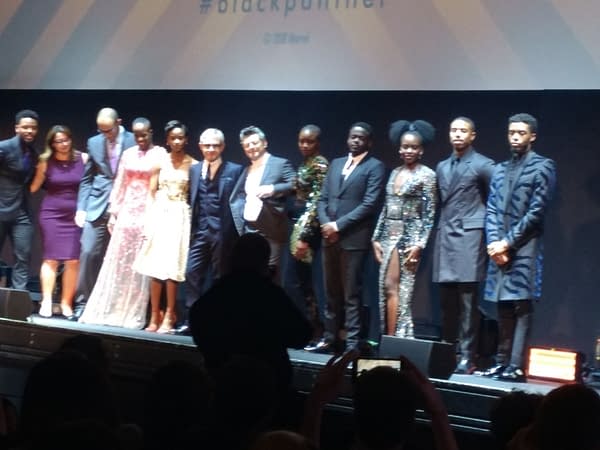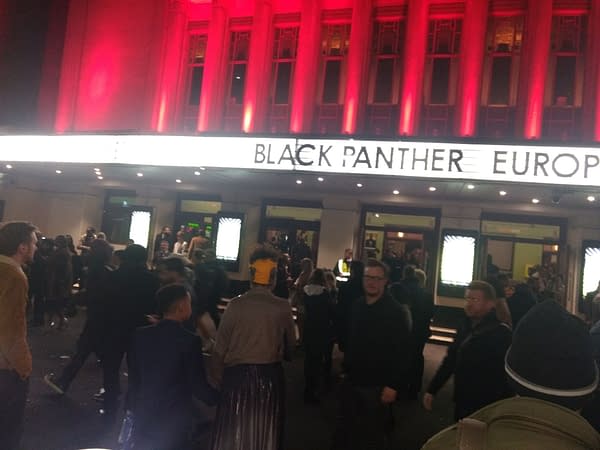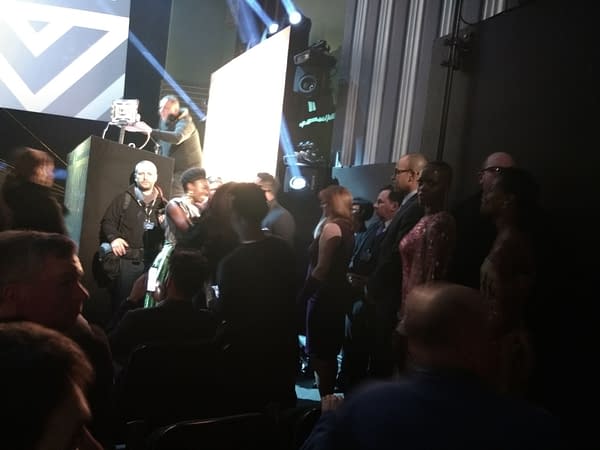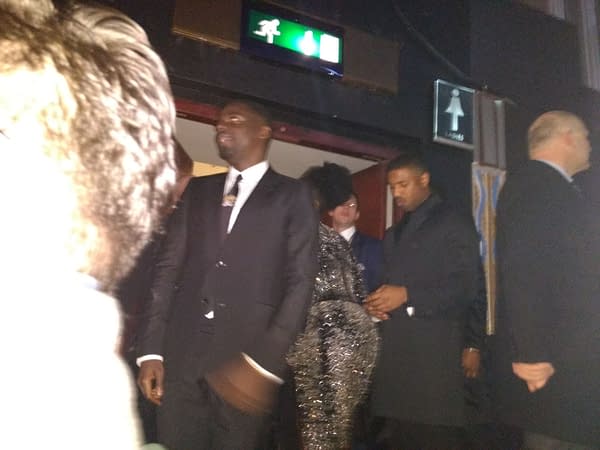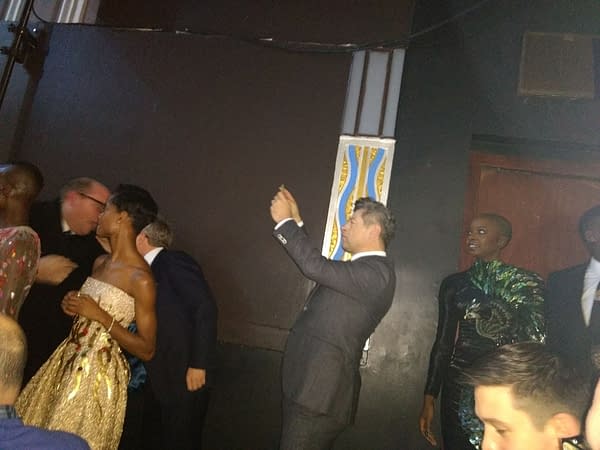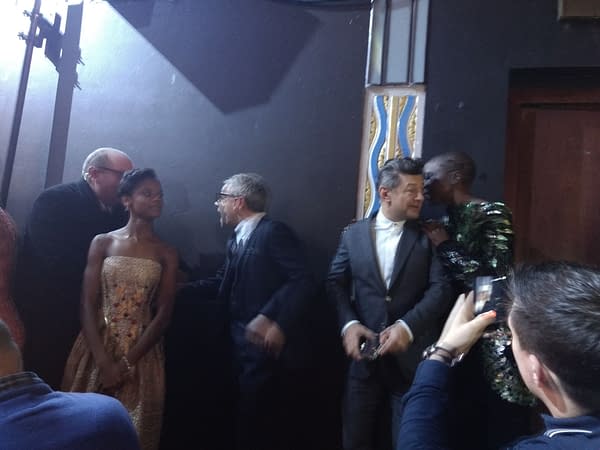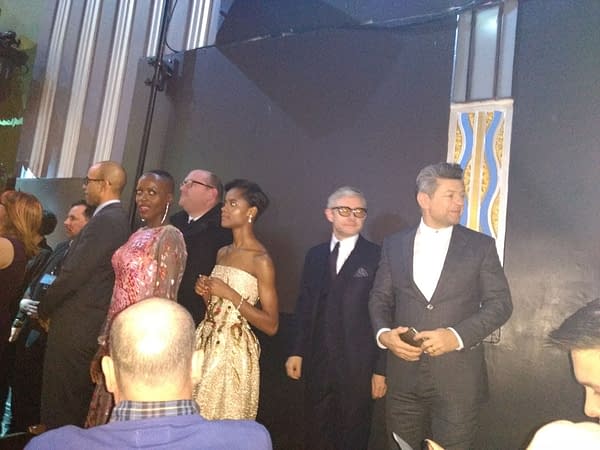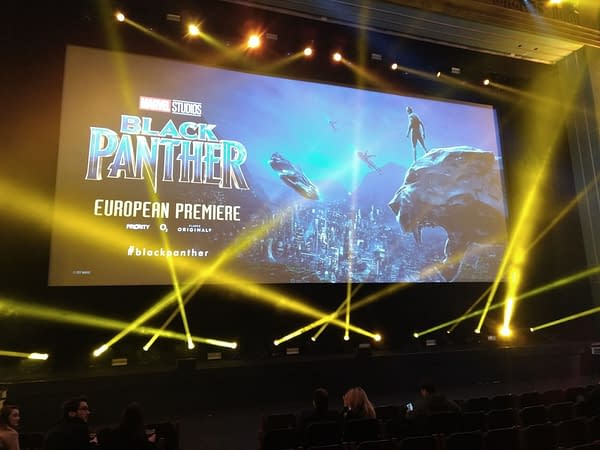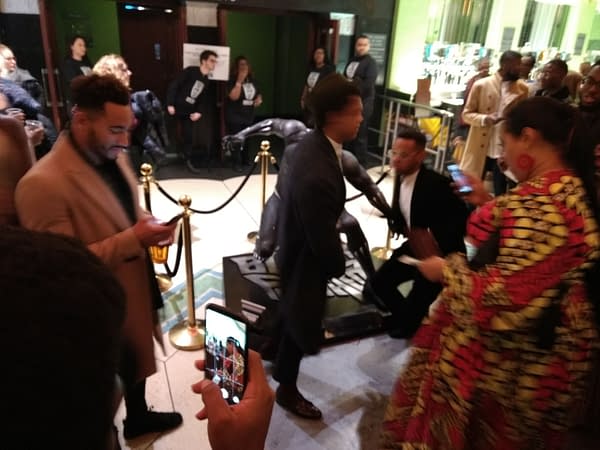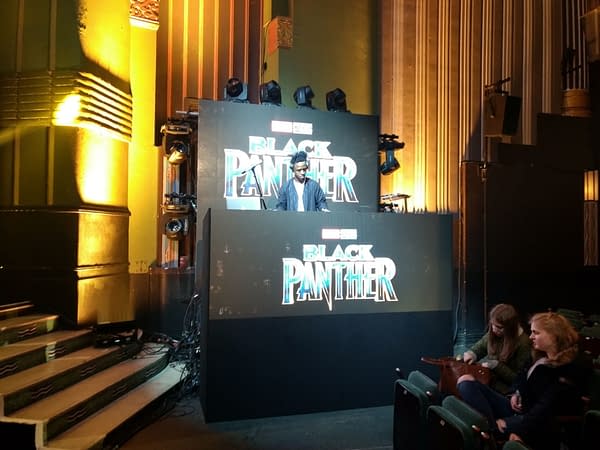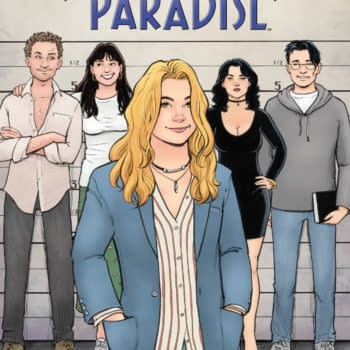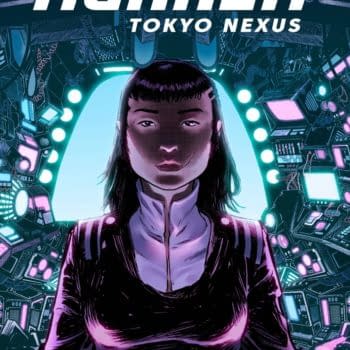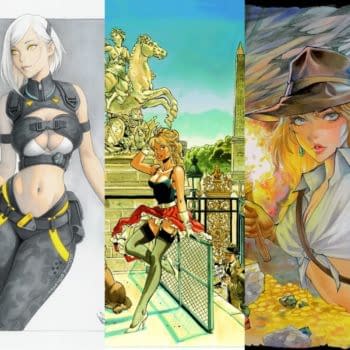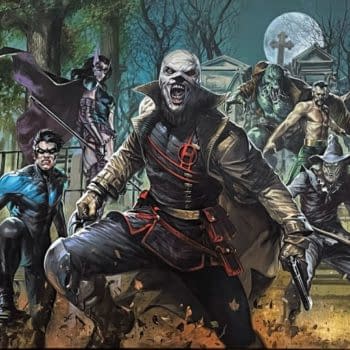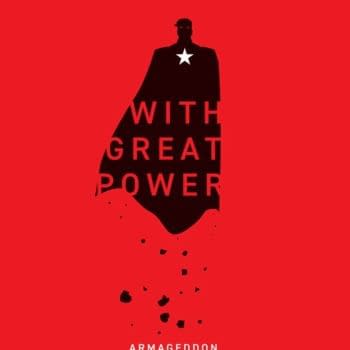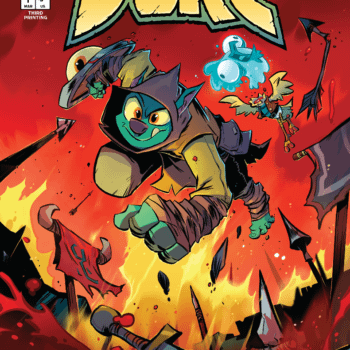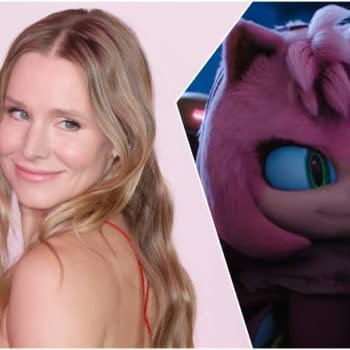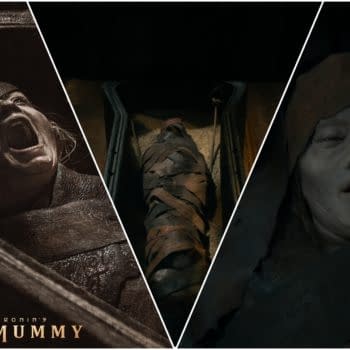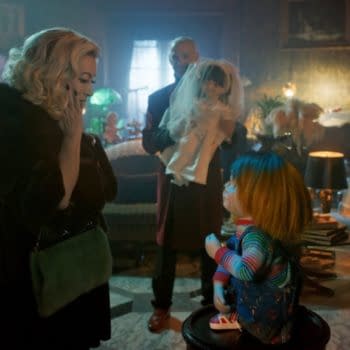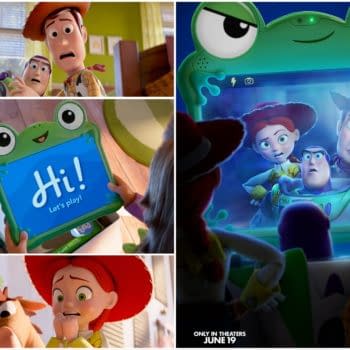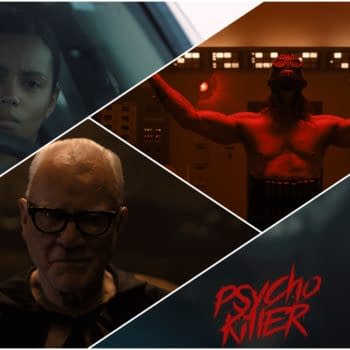Posted in: Movies, Recent Updates | Tagged:
Rich Reviews Black Panther from the European Premiere: Building Bridges or Barriers?
I got the chance to see Black Panther at the European Premiere in Hammersmith, London, last night. From the outset, it was a different kind of premiere. This was the Hammersmith Apollo, usually host to the biggest bands and music performers in the world, but rarely a movie premiere. No room for a red carpet here, just a winding post office queue of metal gates. With the Hammersmith Flyover bridge above us carrying industrial lorries in and out of central London, we moved through metal barrier upon metal barrier, little knowing how this would tie into the themes of the film itself.
And this was the place to be, the hottest ticket in London, and inside the place was packed while outside people were prepared to sell a kidney for a way in. Black Panther has been sold as the realisation of a dream, an all-black superhero drama, and specifically one born of Africa. There has been a hell of a lot of people's hopes riding on it, possibly more than any mid-budget superhero film from Disney should have to bear on its shoulders. There is a feeling that if it fails then so much more would fail, and it would be willed along to success whatever flaws it may have.
No one needed to have worried. Black Panther succeeds at all levels.
The film was introduced by director, producer and cast. The cheers were loud and real and our own Daniel Kaluuya, now best known for Get Out, raised the roof. Director Ryan Coogler was keen to point out the British cast, but everyone here was welcome and celebrated. Will.i.am, sitting behind me, even gave a whoop. And then the lights went down…
Superheroes have always been about power fantasies. Most superhero comic books gave young kids bullied by schoolmates the dream that they were actually far more powerful, hiding in their secret identities. That if only the bully knew how powerful they were/that they were an alien/that they could run faster than the speed of sound, then they would be shown what for. The expansion of the superhero story of late has been around the realisation that there are other power fantasies out there as well, that superfiction could fulfil. The TV show Misfits tapped into the power fantasies of a disenfranchised underclass, Wonder Woman to a gender oppressed and Black Panther to an oppressed minority and an ignored continent — portrayed so often in only limited ways. This is, if nothing else, something new. And where fantasy treads, reality can follow.
And it is something else. So Black Panther succeeds in showing a different world, a different way of thinking and a way that minds can be changed. In recent days there have been a number of memes circulating comparing Wakanda to the policies of Donald Trump, basically saying "you like Black Panther so much, then why don't you like Trump's America? Eh? Eh?" as if this is some kind of insight to expose people's hypocrisy rather than… actually what this film is about. It's a journey of mind, of purpose and how two utterly opposed visions can lead to a third way.
Because, yes, Wakanda is portrayed and criticised as an isolationist nation — justified as necessary to keep the dangerous vibranium that has fueled their society, technology and economy safe from those who would exploit it. But that purpose is then used to justify living the good life by some, while others suffer. Daniel Kaluuya's W'Kabi, is probably the character I most ended up rooting for in the film, as he genuinely tries to do what he thinks is the right thing, even in the face of opposition to those he holds most dear. "You let the refugees in, they bring their problems with them," he initially says, but the film isn't endorsing this attitude. It knows that's a problem, but is not afraid to explore it.
Michael Jordan as Erik Killmonger is the challenger to that belief. He believes that Wakanda should go out and help those who need it, give power to the oppressed, arm them, encourage them to rise up — and then to basically colonise the world. It's hinted at from his very first statements in London, in the Museum of Great Britain, looking at the African artefacts in glass cages and asking why he shouldn't just steal them back. From the get go, he is intervention personified, and it is that struggle, even justifying working with the vibranium-loving colonialist Klaw, reprised by Andrew Serkis, and sacrificing so much more, to get close to where he believes he needs to be.
Christopher Priest's run on the Black Panther comic, on which this film is mostly based in terms of both tone and detail, used Everett Ross as the reader – and frankly probably the white reader's way into Wakanda. Based on Chandler Bing from Friends — and yes, Matthew Freeman does do the exact same turns of the head to Matthew Perry when something illogical or out-of-place is said — this movie does not use him in this fashion at all. Instead, the audience is dropped into Wakanda, without filter.
Assumptions about the viewer's perspective aren't made at all. The closest you get is Letitia Wright as Shuri, Princess and sister to T'Challa, who is more influenced by Western clothing and attitude. But she is very much her own person, and just as integrated into Wakanda as anyone else, as designer, as inventor, as innovator — and at one point is utterly a version of James Bond gadget-maker Q. There are other James Bond moments and touches, including a mountain base and monorails, but the scene before the Wakandas go to deal with Klaw has her running down the latest tech in her lab for T'Challa and you know that everything mentioned will be used at some point in the film. She gets good laughs for her contrasting attitude with the rest of the Wakandas.
And I confess from the trailers I was expecting a more serious film. It doesn't go to Ragnarok extremes but it is funny, often in contrast to T'challa's stoicism. Chadwick Boseman as the Black Panther holds the more ridiculous aspects of the film – and Wakanda – together. Because, if he takes them seriously, then so must the audience. And while the others mock him, he takes it in good grace, He is the King after all.
Some lines are whooped at. One particular "Hey Auntie", as well as a couple of mic-drop lines about colonialism, seemed designed to elicit a "hell yeah", and we get that from Lupita Nyong'o as Okoye especially as well as Winston Duke as M'Baku. They utterly steal the scenes they are in and get the biggest laughs going. However both of their uses of humour is brought into focus by the fire and fury they bring to the rest of their roles, and it is utterly transfixing. Okoye stance with a spear will be the fount of so much cosplay to come.
So, Wakanda, the African nation built on vibranium. Used for everything, weapons, transport, energy, clothing, and telecommunication, with vibranium dust forming solid "holograms" for communication and visualisation, including the opening sequence to the movie, telling the story of Wakanda's history, formed from the glittery dust. Oh and beautiful too. We are shown both how lucky Wakanda is, blessed by the gods, to have received vibranium, but also how resourceful they were in exploiting it. The parallels with the West are obvious – but Wakanda chose to turn inwards. They didn't need to steal Promethea's fire from the gods, it was granted them, and they huddled round to keep the flames alight, and from burning down the forest. But that still has a cost that must be paid.
We see Priest's influence in this world, in the idea of Wakandan espionage around the globe, as well as its own divisions, contradictions and flaws, despite being a wondrous and beautiful achievement. And so it's a story about consequences. How bold, personal acts taken can lead to disastrous ones. For a story that focuses on lineage and ancestors, the sins of the fathers will indeed be revisited upon the sons. And for all the ugliness, how beautiful the land is and how the Wakandan technology, channelling a little Jack Kirby – though not as much as Ragnarok – brings it all together. And nothing demonstrates how well Wakanda is hidden than the scenes as the border to the lands, simple, open, unprotected.
The movie also really works in utter contrast with Captain America: Civil War which had superheroes fighting each other because they were stupid and wouldn't talk out the situation. In Black Panther, we get a full-blown civil war in Wakanda and it has already been talked out. There are two utterly opposing sides of what Wakanda could be, and both are utterly defensible and understandable. Killmonger may play the role of one of the bad guys, but unlike Ulysses Klaw, you could utterly have seen a different film with him as the protagonist without changing a single thing about his plan. Marvel Studios has often had a "bad guy" problem, Black Panther solves it, better even than Fox did with X-Men's Magneto, by making Killmonger's belief and argument watertight. In another film, he could have been the good guy. But for this time, he wasn't. Though as the film ends his influence will be felt…
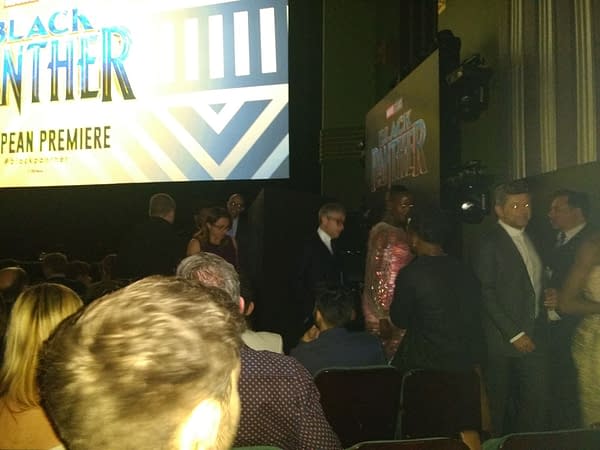
P.S. Yes, there's a Stan Lee cameo, yes there are two post-credit scenes and, yes, everyone will be soon crossing their arms briefly in front of their chest in lieu of handshake or even fist bump. Seriously, come Comic-Con season it may be the best way to avoid the crud…
Black Panther is released on the 16th February in the US and on the 12th of February in the UK. The trailer runs below.


